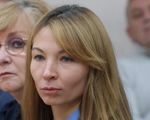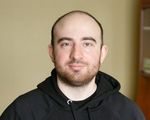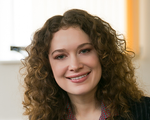About Success Builder
How do you find your place in life? How do you find something to do that both comes naturally to you and makes you happy? The answer is that you have to apply the knowledge you’ve gained from university and from life itself correctly. The Success Builder Project features HSE University graduates who have discovered themselves through an interesting business or an unexpected profession. The protagonists share their experiences and lessons learnt and talk about how they’ve made the most of the opportunities they were given.
It is the job of government relations (GR) professionals to build relationships with government officials. Internet technology companies need such experts, especially given technology’s growing role in business, society and everyday life. HSE University graduate Anton Shingarev works as Corporate Relations Director for Yandex. In this interview with Success Builder, he explains what GR specialists do, why political scientists make good journalists and how interacting with students helps experts stay young.
I have always wanted to understand how someone with a political science degree could earn a living and achieve professional success. How did you understand this when you came to HSE?
I had only a vague understanding of it because I was still only a youth having to choose his future path. Incoming students often just make a random choice or follow someone else’s advice, but they definitely do not have a clear understanding of the profession or of what specialists in the field actually do. It’s no easy task to make that decision at the age of 16 or 17. My parents convinced me to go into this field, for which I am very grateful. I’ve always liked news and politics.
Political science, which seemed like an abstract discipline when I started my studies, turned into an understanding of management and public relations a couple of years later. That is why I made a conscious choice in my fourth year of studies to specialise in PR. It was providential that the education I had received earlier coincided with my chosen profession — and this despite changes taking place in the media and GR fields.
The PR and GR fields are changing constantly. Is it possible to acquire fundamental PR knowledge and skills that do not become obsolete?
This is part of the ongoing debate about the applied and fundamental elements of university education. I still believe that universities should give some direction to students, to somehow train their brains to use their acquired knowledge to meet professional objectives — to be able to pull the necessary files from the database in the required context. In my case, political science served as an excellent foundation for a solid education in the humanities. Our curriculum also included a lot of math, which developed thinking and logic skills.
Political science education is based on the study of history, which is an important and useful discipline. If everyone in a leadership position studied history diligently, the world would be a much better place
My HSE classmates and I graduated in 2007 and realised unexpectedly that this was a new day for political scientists. Regional elections, which had been one of the most interesting projects for political scientists, were now a thing of the past. Public policy had changed quite a bit during our student years. Many of my classmates went into PR and I worked in television for the first few years.
What made HSE unique and interesting for students in the mid-2000s?
This fall I began teaching the first full-time course of my career as an expert — and this has been here at HSE. I have always maintained relations with my alma mater, giving guest lectures, conducting workshops, following news of what’s happening here, hiring HSE students and graduates and initiating joint projects between HSE and Kaspersky Lab. The HSE of today and of that time are two different universities. It has become a larger, more international and modern university that works systematically with students, conducts many activities, offers additional opportunities, collaborates with graduates, etc. This is no longer the audacious university-scale startup of the early 2000s.
At the same time, I was attracted to the environment of freedom that HSE cultivated. Everything was new and fresh then — the educational system itself, as well as the instructors and our relationship with them. We hotly debated topics, which was unlike the traditional teacher-student dynamic.
The students and professors who came to HSE were bold and ambitious — like the university itself — and this was inspiring and attractive
The disciplines, methods and people that passed on expertise to students were much closer to the real world of media than at other universities. The studies were really fun and we all had high expectations.
What is the most important element of a PR professional’s education?
It is always good for third- and fourth-year students to examine case studies. I remember when Igor Pisarsky, the well-known Russian PR professional and founder of the R.I.M. agency came and lectured. He rode up to HSE on his super-stylish Yamaha chopper and told us how PR works, citing specific examples from his own agency. Those case studies were very useful for me. In the GR course I teach at HSE, I try to present a lot of practical material so that students will understand how everything works in reality. This is important to do in the third and fourth year of studies because the foundation is already set and students understand how everything works in an ideal world full of candy-coated castles and pink ponies. That’s when it’s time to shake up those stereotypes a bit.
In my opinion, a university is a factory for the formation of thinking, a worldview and meaning.
I agree, but this works when you choose a little more consciously and the university continues to shape your life, ethics, patterns of behaviour and choices. Looking back at what I was like during my first two years of university, I regret that I was lazy and a poor student. I could have been expelled on more than one occasion. What I am grateful to HSE for is the way of thinking I developed during my studies, along with the values that have been very helpful in my personal and professional life. HSE University does not just teach students but forms people with valuable social qualities, and this is a serious mission.
What was your first professional experience?
I began working in media, at the Russia Today television channel. I hired on in 2007, two years after it was launched. It was a new TV station at that time that reported on Russia, life here and travel. Then I went to London for studies and did freelance work at various Russian TV stations — Russia-1, RenTV and Dozhd. It was a very interesting media experience for a future political scientist and PR professional.
Why do you suppose HSE political science graduates often hit their stride as journalists?
They probably found it for themselves. The media landscape was completely different when I was a student, and someone who understood political processes and could write had no trouble getting an interesting media job. Political science provides a good foundation for both journalism and PR (which is actually the flip side of media). A political scientist is well-read, has a broad outlook, knows history well and has logic and analytical skills, as well as the ability to analyse and present material.
How do you use your media experience in your current duties?
I think there are three categories of PR and GR professionals. The first is those who worked PR in the media or GR in the public sector. The second is people from agencies, and the third is in-house specialists who quickly hired on with companies’ PR and GR departments and stayed at their jobs. I consider industry experience invaluable for PR and GR work because it gives you a much better understanding of the logic behind political processes, how various decisions are made and their consequences. You know how to make a finished product for those on the other side of the table. A PR professional with journalism experience knows his client better than anyone else does because he makes his product for the media.
Why, after graduating from HSE and working for several years, did you decide to continue your studies abroad?
I feel strongly that a person should develop constantly, and education is the best way to do it. And forcing yourself to study under unfamiliar conditions doubles the positive effect. What’s more, I’ve seen friends benefit greatly from studying abroad. I enrolled in Media Management at the University of Westminster. I can’t say that I learned much, but it was still a very good decision. The experience of living, studying and working in a different environment, in a different cultural and political setting where you have to build yourself up from scratch is a great school, especially when you’re young.
My son is now three and I like observing how he develops. It might seem that you’ve invested so much energy in your child’s development in vain, but that’s not true. It’s just that the effect is not always cumulative. Any time you change his typical environment, whether by going to the theatre, travelling or introducing new friends, it causes a leap in development. You come back from a week in the mountains with your child and suddenly, WOW — he’s started talking non-stop, riding a scooter and learning to breakdance.
As an adult, your life doesn’t change much. To keep from getting ‘ossified’, to avoid letting your wits grow dull and your creativity blunted, you have to put yourself into new situations and environments, study, travel and interact with interesting people. For me, London was this type of ‘new horizon’.
How did you end up at Kaspersky Lab?
Completely by accident. At a birthday party, a friend of an ex-girlfriend (just consider how happenstance that was!) told me that Kaspersky Lab was looking for a PR person. For some reason, I couldn’t shake this idea and the next day I found the phone number for the Kaspersky PR department and called. That’s how it started. I worked there from 2012 until 2020 when I moved to Yandex.
Just like that? What had you done to make them give you a PR post right off the bat?
It was probably my media experience and understanding of the industry. It turned out that many of my Kaspersky colleagues were former journalists and the company was looking for specialists with the same background. My Western degree and command of English also played a role because Kaspersky Lab is an international company where you are in constant communication with foreign business partners and colleagues.
What has changed at the company since you’ve worked there, and what professional role did you play in those changes?
The company has developed extensively, both technologically and conceptually over the years. My main contribution has been to develop an outstanding international GR team. When the company was going through a crisis, we launched the Global Transparency Initiative, a major PR and GR programme for the IT industry that was very innovative. This trend towards openness has played an important and positive role in the company’s communications with not only the authorities but also the global information community. And, of course, we could not have accomplished anything without a great team, and I am very proud of them.
How difficult is it to recruit employees and act as a gatekeeper for professionals?
My hiring duties came to me rather unexpectedly. People are often put in top management positions without being prepared for them, and this is very difficult. You feel like reading every book on management in a search of answers. Contrary to stereotypes, such positions do not make you freer: they tie you to the staff, place you in plain view of all and force you to make decisions that affect everyone. You have to work on yourself, study and act responsibly because your promotion is a challenge for the company. I have learned, for example, that top students don’t necessarily make the best managers. Managing others requires the ability to delegate and trust others, whereas many outstanding students are perfectionists and it can be difficult for them when their team does something wrong.
As a manager, you know (but, in fact, only think you know) how to do things better, but you must trust your employees and patiently let them make mistakes
You can be a great professional but a lousy leader, or a great person but a failure as a specialist. Hiring people requires a whole set of skills that you can only gain through practice and that, in addition to the standard hiring procedures, requires the professional intuition of the recruiter.
What are the objectives of the Yandex GR department?
Yandex offers many services — food tech, Yandex.Taxi, Yandex.Drive, media, geolocation, etc. Every day my team deals with a variety of tasks concerning such things as the regulation of drones, the labelling of goods and antitrust regulation issues in ECE countries. Digitalisation is now progressing at such a pace that Yandex, like other technology companies, offers its expertise for the development and legal regulation of the digital economy.
An interesting example of our work concerns the delivery of medicines. Yandex.Market is one of the largest e-commerce operators in the country, and during this year of Covid, the issue of drug deliveries has taken on particular importance. Until this past spring, the delivery of drugs was illegal in Russia, although the Internet services of many other countries had such powers. We have been struggling for years to legalise this practice and have finally managed to secure a government ordinance that, with some provisos, makes it possible to include medicines on the list of allowable goods for delivery. A number of restrictions were also imposed, and we’re working now to minimise them because this is not just a service, but an important social task.
Another example is creating conditions for introducing unmanned vehicles in the transport system of the capital. Russian developments in driverless transport are among the most advanced in the world, on a par with those in the U.S. and China. For example, Yandex is among the Top 3 companies in the world for the number of driverless kilometres travelled. The figure currently stands at 8 million km., 5 million of which were travelled in Moscow, with its difficult roads and weather conditions. By opening up new opportunities for developers to use this technology, we can become one of the first countries where driverless vehicles are a part of everyday life. This will help meet the growing demand for taxi and fast delivery services, while also making the roads a safer and more predictable environment. Along with other market participants, we have presented the ministries and the government with a five-year plan for the development of ‘cutting-edge’ regulation and have continued to discuss how we can make Russian legislation flexible and conducive to innovation.
Why did you leave Kaspersky Lab for Yandex in 2020?
I wanted to move on and work towards new goals. I am also very tired of business trips: I spent about one-half of those seven years in other countries. I would have to visit 10 countries in three weeks, and at some point, I would stop caring where I was going and what I was seeing. I just wanted to get to the hotel and sleep.
What prompted you to teach classes at HSE University? What do you want to convey to your students?
I recently asked Elena Bunina [Yandex CEO and MSU professor of mathematics and mechanics – Ed.] why she teaches. She was very surprised by my question and said it was natural for a person to teach others. How could you not do that? Passing on knowledge is an important part of human nature and our culture. What’s more, it brings practical benefits to the teacher as well: presenting information to others forces you to systematise your knowledge and organise it in your own mind. By explaining something to students, you come to a deeper understanding of the subject yourself. And a more prosaic reason to teach is to find talented interns.
Presenting lectures to students makes me think about the future. I would like to go on teaching
Thirty years from now, I would not want to be working in GR, but I would be happy to be teaching at HSE. This is a wonderful activity for someone with experience. It enables you to stay sharp and alert. When I conducted workshops at HSE, I was struck by the originality of the first-year students’ ideas. This forces me to think outside the box myself. Students energise you with new thoughts and ideas, which prevents you from getting too settled in your own thoughts and concerns.
My grandmother taught until the end of her life and always said that students were her vitamins and the best medicine for all types of illness. That idea has stayed with me and only now do I realise just how right she was.














































































































































